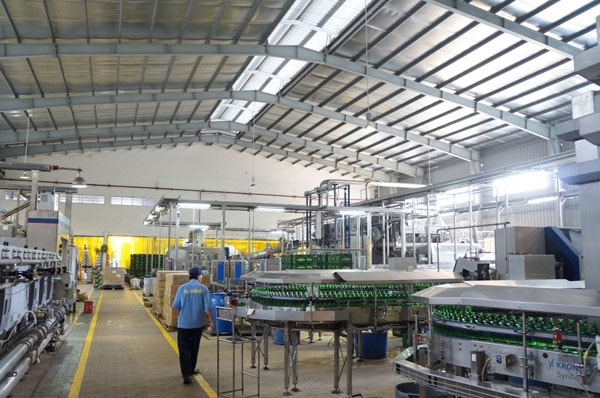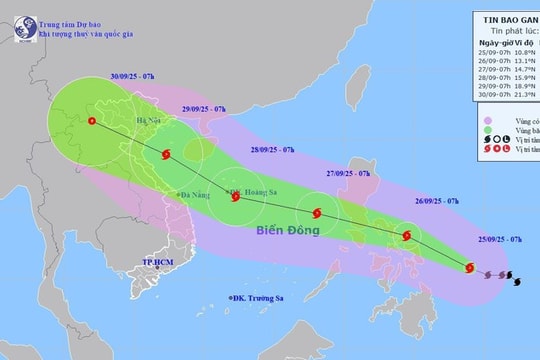Many "big guys" are suspected of transfer pricing
According to State Auditor General Ho Duc Phoc, transfer pricing activities are becoming more complex and sophisticated, not only FDI enterprises but also many domestic enterprises have shown clear signs of transfer pricing.
Appeardomestic transfer pricing
The State Audit and the Association of Chartered Certified Accountants (ACCA) recently organized a scientific workshop on “Transfer pricing - Issues in current management”. According to Dr. Ho Duc Phoc, State Auditor General, about ten years ago, transfer pricing in Vietnam was still a new concept, but now it has become a common activity.
Notably, not only FDI enterprises but also many domestic enterprises have shown clear signs of transfer pricing, causing losses to the state budget, including Sabeco. From a legal perspective, the State Audit Office's recommendation to collect special consumption tax from this enterprise can be seen as indirectly pointing out a loophole in the management of special consumption tax.
 |
“Transfer pricing activities are becoming more complex, sophisticated and constantly increasing, not only in FDI enterprises but also in domestic enterprises. This reality poses significant challenges to state management of transfer pricing activities, including auditing activities,” said Dr. Ho Duc Phoc.
According to Chief Auditor, State Audit Office of Specialized Sector VI Nguyen Anh Tuan, the process of equitization of state-owned enterprises is raising issues regarding the management of subsidiaries and affiliated companies in which state capital participates in investment but only holds less than 50% of charter capital. In the period of 2011 - 2015 alone, the whole country has reorganized 588 enterprises, of which 508 units have been equitized with a total value of over 760 trillion VND.
However, in the first two years of this period, only 25 units were equitized. In 2016, the first year of the equitization process in the 2016 - 2020 period, things were better with 56 enterprises approved by competent authorities with an enterprise value of over 34 trillion VND, of which the actual value of state capital in the enterprise was over 24,390 billion VND.
“With the number and value of equitized enterprises, the state holds less than 50% of charter capital, meaning the possibility of transfer pricing between subsidiaries and affiliated companies is increasing. This poses great requirements and challenges for specialized agencies in combating transfer pricing,” said Mr. Tuan.
Signs of transfer pricing
According to Dr. Nguyen Manh Cuong, Deputy Director of the General Department, State Audit, the signs of transfer pricing that often occur in enterprises are inflating the value of input goods and services; reducing the output value of goods and services. Or in other words, buying at high prices, selling at low prices, despite continuous losses, still expanding production and business activities and making transactions with affiliated enterprises abroad with large transaction quantities and values.
Mr. Cuong cited that in some localities with many FDI enterprises declaring losses such as Binh Duong, the number of FDI enterprises declaring losses was up to 754 enterprises, of which 200 enterprises had losses exceeding their equity. Meanwhile, in Ho Chi Minh City and Dong Nai, the percentage of FDI enterprises declaring losses was 60% and 52.2%, respectively. By reporting losses, most of these enterprises do not have to pay taxes, which means the budget will lose a significant amount of revenue.
According to Mr. Nguyen Anh Tuan, through the survey, FDI enterprises operating at a loss often focus on the garment processing, leather and footwear, production, export tea trading, and processing industry. In particular, up to 90% of FDI enterprises operating in the garment sector in Ho Chi Minh City have business results at a loss, while most domestic enterprises in the same industry are profitable.
Notably, despite continuous losses, FDI enterprises in Vietnam still invest in expanding production and business. A typical example is Coca-Cola Vietnam. In 20 years of investing and doing business in Vietnam, this beverage company has continuously reported losses, not having to pay corporate income tax, while revenue has continuously increased by 20-30% each year. Notably, despite large losses, this enterprise has planned to invest an additional 300 million USD in Vietnam.
The most obvious story recently pointed out by the State Audit Office is the story related to Metro Vietnam supermarket, which has been suspected of transfer pricing recently. Metro was established in 2001 and has developed 19 wholesale centers nationwide but has reported continuous losses, despite its revenue increasing continuously every year. In addition, many other FDI enterprises are also under suspicion, such as: Adidas Group, Big C supermarket, PepsiCo Vietnam Company, Sumitomo Bakelite Vietnam Company Limited, Meiko Electronics Vietnam Company Limited....








